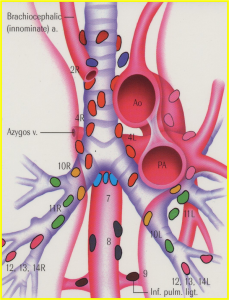MRI is a very important test that helps in evaluating the patient’s response to chemotherapy before surgery. Latest studies have now shown that MRI, short for Magnetic Resonance Imaging, can also be used to predict survival in cancer patients and hence, can be used to alter the intensity of therapy. The study was conducted in the Royal Marsden Hospital Trust. Gina Brown, the lead author, said that no studies have been conducted to test the response of rectal patients to chemotherapy before surgery. She also said that MRI before and after chemotherapy treatment can be effectively used to decide the future course of treatment including use of medication, surgery and further medical treatments. As of now, MRI is not the most popularly used test before and after chemo radiation therapy.For the study, 111 rectal cancer patients who have already undergone the first phase of chemotherapy were considered. The patients were all cases of locally advanced rectal cancer. The study started in 2002 and results were followed for five year. Tumor Regression Grade, a parameter that indicates the intensity of shrinkage of cancer cells in the tumor, was studied.

Another factor that was measured was Circumferential Resection Margin which is an indicator of the left over cancer cells after chemotherapy. The response of patients to chemo radiation was classified as good and poor. When the rate of survival was compared between the good and bad responders, it was found that people who were good responders has a 72% chance of survival after five years. On the other hand, only 27% of the bad responders were alive after five years.
After five year, 64% of good responders were able to get rid of their disease. Among poor responders, only 31% were cancer free. Further, use of MRI in predicting CRM proved very effective since only 12% of patients who were predicted not to relapse into cancer relapsed, showing that MRI is a largely safe and reliable prediction base. The major problem with rectal cancer is that it occurs at an advanced stage where it becomes difficult to perform serious surgeries. Therefore, chemotherapy is widely used in order to make the procedure simpler. With the effectiveness of MRI in cancer detection and prediction of survival has been established, it is easier for doctors to make decisions as per the future course of treatment. Brown said that the next phase of the study will be to decide the intensity of treatment based on how patients respond to MRI.